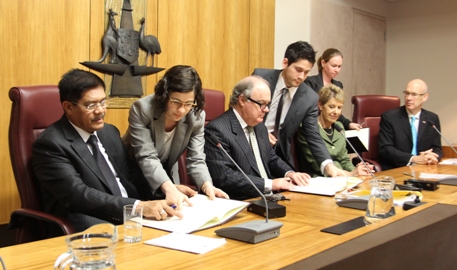Most results of National Working Meeting 2011 have been Implemented
Jakarta l Badilag.net
 The Directorate General of the Religious Courts (Ditjen Badilag) has succeeded in implementing some prioritized programs in which was discussed in National Working Meeting 2011.
The Directorate General of the Religious Courts (Ditjen Badilag) has succeeded in implementing some prioritized programs in which was discussed in National Working Meeting 2011.
The programs include case settlement, human resource management, website, public service and information desk, implementation of SIADPA (computerized case management), justice for all (waiving court fees, legal aid post and circuit court).
Ditjen Badilag created a monitoring team to assure that all prioritized programs run well. The main task of the team is to identify and understand problems related to the prioritized programs and finally to find the best solution.
The team conducted a number of assessments to the programs in 2011 and in the middle of 2012. Based on the result of assessment, Ditjen Badilag awarded some Religious Courts during celebration of 130th anniversary of the Religious Courts on September 17-18, 2012, at Mercure Hotel, Ancol.
.



